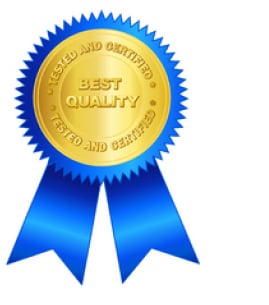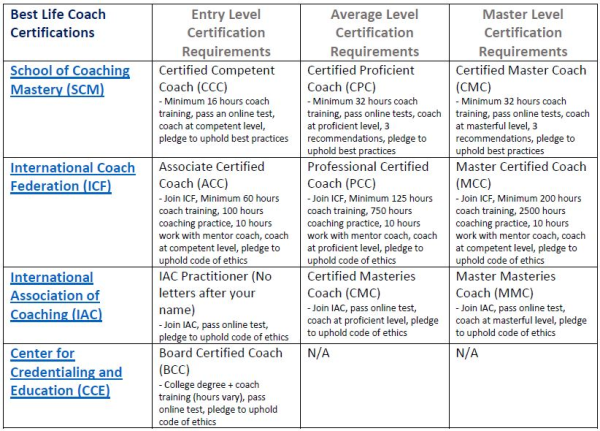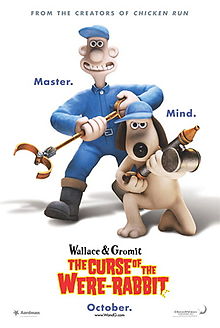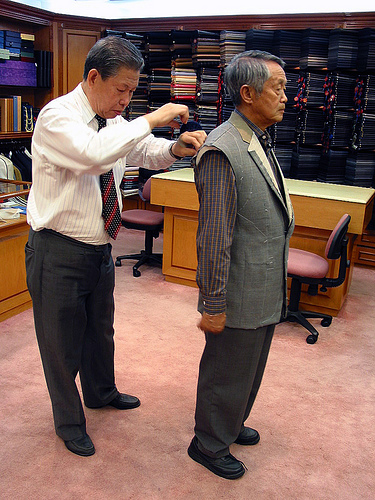 Written by Julia Stewart
Written by Julia Stewart
If you want to become a life coach (or business coach, executive coach, career coach, etc.), then you need one of the following best life coach certifications (See table, below). They are all "general" coach certifications, meaning they measure the knowledge and skills required for professional coaching, regardless whether you are a life coach, business coach, executive coach, or some other type of coach. Because, as we say in coaching, "All coaching is really life coaching, because everyone has a life." If you have expertise in business, for instance, you can combine that with your coaching skills to become a business coach.
There are hundreds of life coach certifications to choose from. I created the following table to compare and contrast some of the leading coach certifications, and their requirements, to help you avoid getting caught up with the wrong organizations. Watch out for organizations with similar-sounding names that may be disreputable. Some of them are scams.
You need at least an entry-level (competent) certification, because surveys show that prospective coaching clients prefer coaches with credentials, when given the choice, even if they don't ask about certification. On average, most certified coaches achieve proficient-level certifications. Certified master coaches are relatively few and are considered the "elite". Yes, you can often attract more clients (those who are looking for the best) and charge more for your coaching when you have master-level certifications.
What makes these the best life coach certifications? All the following organizations are highly respected. Some basic differences include:
- School of Coaching Mastery (SCM) is a coach-training school that will prepare you for its certifications, the cost of which is usually included with the cost of your training.
- International Coach Federation (ICF) is the largest and best known association of professional coaches.
- International Association of Coaching (IAC) was founded by the same man, Thomas Leonard, who founded the ICF, because he thought he had discovered a better way to certify great coaches.
- Center for Credentialing and Education (CCE) is not an association or training organization; it simply certifies based on previous training and education, plus a standardized test. (Actually, I have some reservations about this one.)

If the above table is too small for you to see, or if you just want to have a copy of it for future reference (recommended), click the button below:



 Written by
Written by 






-resized-600.jpg)










